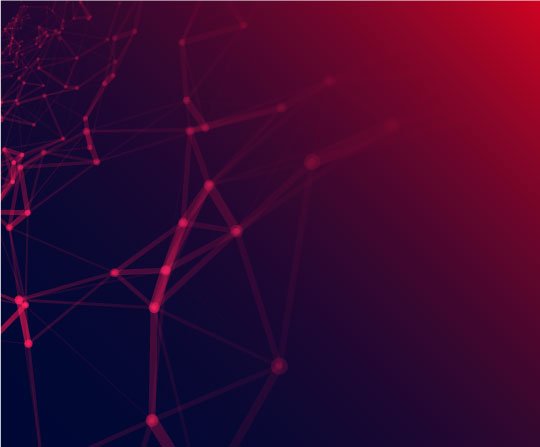April 10, 2024

Cybersecurity, Software Development
Cybersecurity: Protecting Your Digital Life
Cybersecurity: Imagine your digital life as a bustling marketplace. Your personal information, financial accounts, and online profiles are like valuable goods on display. Cybersecurity is the security guard, the watchful eye, and the secure vault that keeps these valuables safe from harm.
In today’s digital world, where we rely on technology for almost everything, from online banking and shopping to social media and entertainment, cybersecurity has become an absolute necessity. A recent report by Cybersecurity Ventures: [invalid URL removed] predicts global cybercrime costs to reach a staggering $10.5 trillion annually by 2025! That’s a hefty price tag for neglecting online safety.
The Rise of Cybercrime: A Looming Threat
The digital landscape is constantly evolving, and so are the tactics of cybercriminals. These bad actors are becoming increasingly sophisticated, employing a wide range of techniques to infiltrate systems and steal data. Here’s a closer look at some of the most common cybercrime trends:
- The Rise of Ransomware: This malicious software encrypts a victim’s files, making them inaccessible. The attacker then demands a ransom payment in exchange for the decryption key. Ransomware attacks can cripple businesses and individuals alike, causing significant financial losses and data disruption. According to a 2023 report by Coveware: [invalid URL removed], the average ransom payment surged to a record-breaking $260,000!
- The Stealthy Approach: Advanced Persistent Threats (APTs): These targeted attacks focus on gaining long-term access to a system to steal sensitive information. APTs are often highly sophisticated and difficult to detect, making them a major concern for governments and large corporations.
- The Supply Chain Shuffle: Cybercriminals are increasingly targeting third-party vendors and suppliers in their attacks. By compromising a less secure system within a supply chain, attackers can gain access to the target organization’s data. This highlights the importance of robust cybersecurity measures across all levels of a business ecosystem.
The Human Element: Why We Are Vulnerable
While cybercriminals develop ever-more complex techniques, it’s important to remember that many attacks exploit human vulnerabilities. Here are some common ways attackers trick users into compromising their security:
- Phishing Attacks: Deceptive emails or messages attempt to lure victims into clicking on malicious links or revealing sensitive information. Phishing scams often mimic legitimate companies or organizations, making them appear trustworthy. A 2023 report by PhishLabs: [invalid URL removed] found that phishing emails accounted for 83% of all data breaches!
- Social Engineering: This tactic involves manipulating users through psychological techniques to gain access to information or systems. Social engineering attacks can be highly personalized and often exploit a victim’s sense of urgency or trust.
- Preying on Fear: Cybercriminals often use scare tactics to pressure users into taking rash decisions. For example, a phishing email might claim to have detected suspicious activity on your account and urge you to click a link to “verify” your identity.
Building Your Digital Fortress: Essential Cybersecurity Tips
Now that you understand the ever-present threat landscape, let’s explore some actionable steps you can take to fortify your cybersecurity defenses:
- Password Powerhouse: Create strong and unique passwords for all your online accounts. A strong password is typically at least 12 characters long and includes a combination of uppercase and lowercase letters, numbers, and symbols. Consider using a password manager to help you generate and store your passwords securely.
- Software Updates: Your Digital Shield: Always install the latest software updates for your devices and operating systems. These updates often contain security patches that fix vulnerabilities exploited by cybercriminals. Enable automatic updates whenever possible to ensure you’re always protected.
- Two-Factor Authentication: Double the Security: Whenever available, enable two-factor authentication (2FA) for your online accounts. 2FA adds an extra layer of security by requiring a second verification step, such as a code sent to your phone, when logging in.
- Beware of Public Wi-Fi: Public Wi-Fi networks are notoriously insecure. Avoid using public Wi-Fi for sensitive activities like online banking or accessing financial accounts. If you must use public Wi-Fi, consider using a Virtual Private Network (VPN) to encrypt your data and make it invisible to hackers.
- Think Before You Click: Don’t click on links or attachments in emails or messages from unknown senders. Be cautious of unsolicited offers and promotions, especially those that seem too good to be true. Always verify the sender’s identity before clicking on anything.
- Educate Yourself and Stay Informed: The cybersecurity landscape is constantly evolving. Staying informed about the latest threats and trends will help you make smarter security decisions. There are numerous resources available online, including government websites, cybersecurity blogs, and security software vendor websites.

Beyond the Basics: Advanced Cybersecurity Measures
For individuals who handle sensitive data or manage critical systems, additional security measures may be necessary. Here are some advanced tips to consider:
- Data Encryption: Encrypting your data makes it unreadable to anyone who doesn’t have the decryption key. This can be a valuable tool for protecting sensitive information on your devices and in storage.
- Stronger Authentication Methods: Consider using biometric authentication methods like fingerprint scans or facial recognition for added security on your devices and accounts.
- Regular Backups: Backing up your data regularly is crucial for disaster recovery. In the event of a cyberattack or data loss, a recent backup can help you restore your information quickly.
Cybersecurity: A Shared Responsibility
While individuals play a vital role in protecting themselves online, the responsibility for cybersecurity extends beyond personal devices. Businesses have an obligation to safeguard customer data and implement robust security measures. Governments also play a crucial role in developing and enforcing cybersecurity regulations and frameworks.
Building a Culture of Cybersecurity
Creating a culture of cybersecurity awareness within organizations is essential. This involves educating employees about cyber threats, best practices for secure computing, and reporting procedures for suspicious activity. Regular security training can significantly reduce the risk of human error leading to cyber breaches.
The Future of Cybersecurity: Constant Vigilance
Cybersecurity is an ongoing battle. As technology evolves, so do the tactics of cybercriminals. Staying vigilant, adapting to new threats, and continuously improving security measures is critical in the fight against cybercrime.
Conclusion: Empowering Yourself in the Digital Age
By understanding the importance of cybersecurity and taking proactive steps to protect yourself online, you can significantly reduce your risk of falling victim to cyberattacks. Remember, cybersecurity is a shared responsibility. By working together, individuals, businesses, and governments can create a safer and more secure digital world for everyone.
Bonus Tip: Spread the word! Educate your friends and family about the importance of cybersecurity. Together, we can create a digital landscape where everyone feels confident and empowered to navigate the online world safely.
Additional Resources:
Cybersecurity & Infrastructure Security Agency (CISA): https://www.cisa.gov/
National Institute of Standards and Technology (NIST) Cybersecurity Framework: https://www.nist.gov/cyberframework
Stay Safe Online: https://staysafeonline.org/
Want to learn more about How Teams can Improved Productivity with Agile Methodologies? Discover how Agile Methodologies can revolutionize your team’s productivity Click to Elevate Your knowledge!









